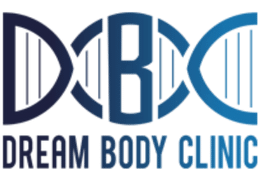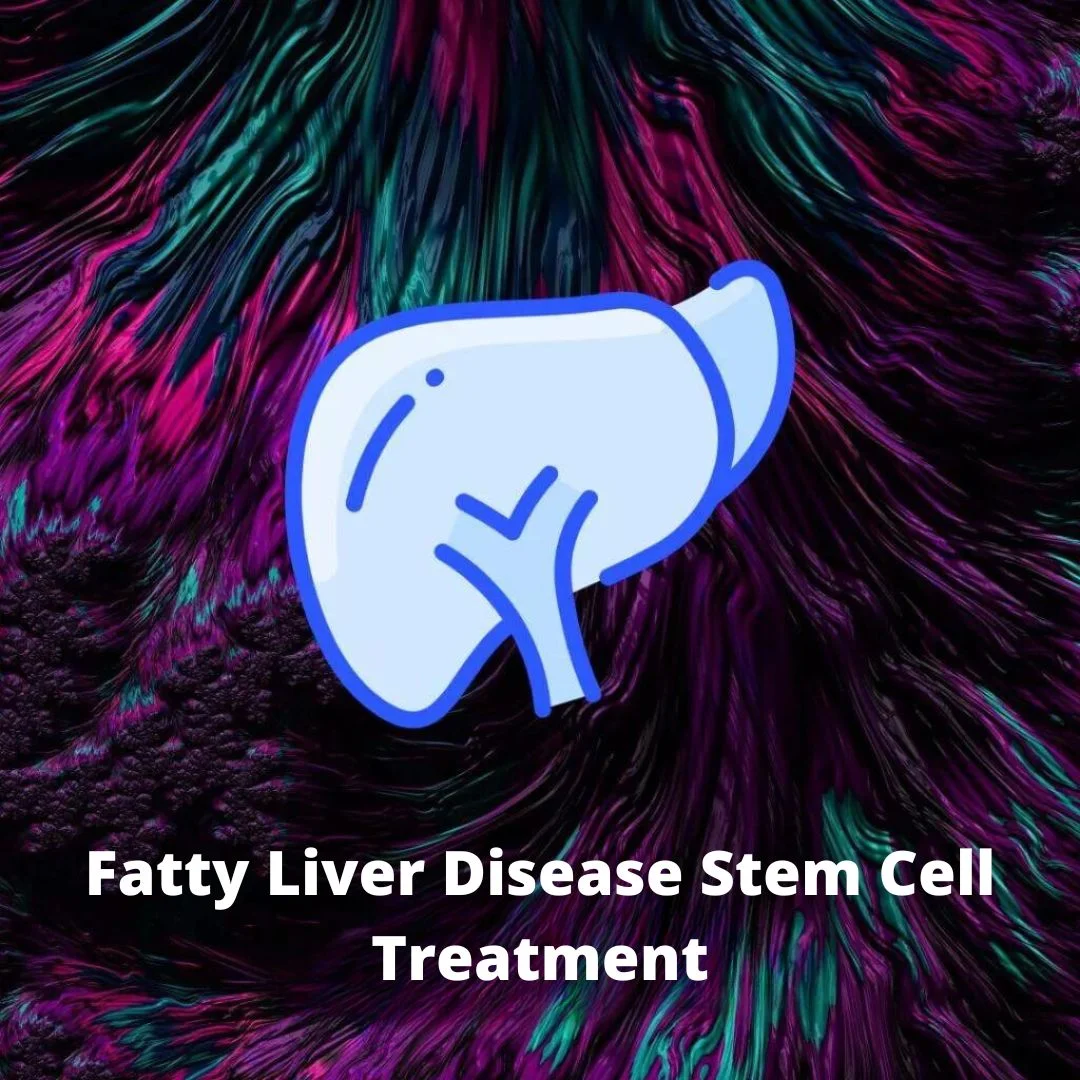Stem Cell Therapy for Fatty Liver Disease Stem Cell Treatment at Dream Body Clinic
Stem Cell Therapy for Fatty Liver Disease at Dream Body Clinic offers promising avenues for treating a range of liver conditions, including non-alcoholic fatty liver disease (NAFLD), alcoholic liver disease (ALD), liver fibrosis, cirrhosis, and more. The therapy utilizes the regenerative potential of mesenchymal stem cells to address the underlying issues and promote the healing process.
Understanding Mesenchymal Stem Cell Regeneration in Fatty Liver Disease
Mesenchymal stem cells possess a remarkable capacity to initiate regeneration and differentiation of diverse liver cell types such as hepatocytes, cholangiocytes, and bile duct cells. This ability plays a pivotal role in revitalizing liver tissue and repairing damage.
Upon administration into the body, mesenchymal stem cells target the site of injury, releasing a plethora of growth factors, anti-inflammatory cytokines, and extracellular matrix proteins. This orchestrated release creates a conducive microenvironment that fosters the regeneration and repair of liver cells.
Impactful Ways Mesenchymal Stem Cells Contribute to Fatty Liver Disease Treatment:
- Facilitating Liver Cell Regeneration: Mesenchymal stem cells exhibit the potential to differentiate into various liver cell types, effectively encouraging the regeneration of damaged liver tissue and restoring proper liver function.
- Reducing Inflammation: The immunomodulatory effects of mesenchymal stem cells help mitigate harmful immune responses and dampen inflammation arising from liver disease, supporting healing.
- Halting Liver Fibrosis: Mesenchymal stem cells possess the ability to inhibit the activation of liver stellate cells, pivotal agents in liver fibrosis. By doing so, they effectively hinder the progression of fibrosis and enhance overall liver function.
- Modulating Immune Response: Mesenchymal stem cells play a role in modulating immune cell function associated with liver disease, contributing to regulating immune responses, minimizing liver damage, and promoting liver recovery.
- Enhancing Liver Cell Survival: Through the release of growth factors, cytokines, and extracellular matrix proteins, mesenchymal stem cells bolster the survival of liver cells. This microenvironment nurtures liver cell viability and regeneration.
- Synergy with Liver Cell Transplantation: Mesenchymal stem cells synergize with liver cell transplantation, enhancing the efficacy of the procedure and refining outcomes.
- Countering Oxidative Stress: Mesenchymal stem cells combat oxidative stress within the liver, a hallmark of liver disease that contributes to cell damage and inflammation.
Advancing the Outlook for Cholangiocytes in Fatty Liver Disease Treatment
Cholangiocytes, specialized epithelial cells lining the bile ducts, hold a pivotal role in bile formation, secretion, and overall bile flow maintenance within the liver.
Mesenchymal stem cells exert a positive influence on cholangiocytes by fostering their survival, proliferation, and differentiation. Research reveals that mesenchymal stem cells secrete a spectrum of factors, such as hepatocyte growth factor (HGF), insulin-like growth factor (IGF-1), and vascular endothelial growth factor (VEGF). These agents stimulate cholangiocyte growth, shield them from harm, and promote their transformation into functional bile duct cells.
Furthermore, mesenchymal stem cells impact the immune response in the liver, a factor intertwined with cholangiopathy and bile duct disorders. By tempering detrimental immune reactions, mesenchymal stem cells safeguard cholangiocytes from the inflammatory and immunological ravages leading to disease.
Mesenchymal Stem Cells: Attenuating Liver Fibrosis in Fatty Liver Disease
Liver fibrosis, a critical aspect of fatty liver disease, faces resistance from mesenchymal stem cells through an orchestrated interplay of immune response modulation, inflammation reduction, and matrix remodeling induction. This collaborative mechanism culminates in the inhibition of hepatic stellate cell activation, the driving force behind liver fibrosis.
Key Avenues through which Mesenchymal Stem Cells Curtail Liver Fibrosis:
- Immune Response Modulation: Mesenchymal stem cells modulate immune cell function, including T-cells, B-cells, and natural killer (NK) cells. This modulation curtails immune response and checks further liver damage.
- Inflammation Reduction: Mesenchymal stem cells exhibit potent anti-inflammatory traits, instrumental in curbing inflammation that fuels fibrosis progression.
- Matrix Remodeling Induction: Mesenchymal stem cells stimulate the remodeling of extracellular matrix proteins, fostering the dismantling of fibrotic tissue and the emergence of fresh, healthy tissue.
- Growth Factor Secretion: Mesenchymal stem cells secrete diverse growth factors, sparking the regeneration of liver cells and impeding fibrosis development. Noteworthy growth factors encompass hepatocyte growth factor (HGF), transforming growth factor-beta (TGF-β), and insulin-like growth factor-1 (IGF-1).
Conclusively, the actions of mesenchymal stem cells in abating liver fibrosis hold significant therapeutic promise, reflecting their potential to arrest liver damage and invigorate the rebirth of wholesome liver tissue.
Mesenchymal Stem Cells: Illuminating the Path to Healing Fatty Liver Disease and Cirrhosis
The role of mesenchymal stem cells in addressing fatty liver disease and cirrhosis revolves around the stimulation of healing and regeneration within liver cells. By harnessing the regenerative potential of these stem cells, the therapy offers a pathway to mitigate fat accumulation in the liver and ameliorate symptoms associated with these conditions.
While the precise mechanisms driving the removal of fat from the liver and the reversal of cirrhosis require further elucidation, the following avenues are believed to contribute:
- Cellular Differentiation: Mesenchymal stem cells direct the differentiation of cells, including hepatic progenitor cells and liver stem cells, into functional hepatocytes and cholangiocytes. This transformation augments liver cell numbers, facilitating fat clearance and improved liver function.
- Anti-Inflammatory Effects: Mesenchymal stem cells release anti-inflammatory cytokines that temper liver inflammation, curbing damage to liver cells and aiding in the reduction of fat accumulation.
- Immunomodulation Effects: Mesenchymal stem cells regulate immune response in the liver, diminishing the release of pro-inflammatory agents that trigger liver damage and inflammation—two drivers of fatty liver disease.
- Antioxidant Effects: Mesenchymal stem cells secrete antioxidants that counter oxidative stress, a leading cause of fatty liver disease. This antioxidant action encourages cell renewal and supports fat clearance.
Ultimately, mesenchymal stem cells introduce a promising therapeutic avenue for tackling fatty liver disease and associated complications. Their capacity to rejuvenate and restore the liver’s health presents a beacon of hope for individuals grappling with these conditions.
Liver Failure Stem Cell Studies
- Stem cells: a potential treatment option for liver diseases
- Therapeutic Potential of Umbilical Cord Stem Cells for Liver Regeneration
- Mesenchymal stem cell therapy for liver fibrosis
- The therapeutic promise of mesenchymal stem cells for liver restoration
- Improvement of liver function in liver cirrhosis patients after autologous mesenchymal stem cell injection: a phase I–II clinical trial
- Liver-specific gene expression in mesenchymal stem cells is induced by liver cells
- Antioxidant-upregulated mesenchymal stem cells reduce inflammation and improve fatty liver disease in diet-induced obesity
- Bone marrow derived-mesenchymal stem cell improves diabetes-associated fatty liver via mitochondria transformation in mice
- Mechanisms of Action of Mesenchymal Stem Cells in Metabolic-Associated Fatty Liver Disease
- Human umbilical cord-derived mesenchymal stem cell therapy ameliorates nonalcoholic fatty liver disease in obese type 2 diabetic mice
Stem Cell Therapy for Liver Disease: Balancing Promise and Risks
Stem cell therapy for liver disease holds tremendous promise, yet it’s vital to consider potential risks. The potential side effects linked to this therapy include:
- Slight Fever and Headache: Approximately 1 in 100 individuals may experience a brief fever and/or headache following treatment, typically lasting a few hours or up to the next day. Administration of 500mg of Tylenol is often sufficient to alleviate these effects.
- Risk of Infection: As with any treatment involving injections, there exists a general risk of infection. However, stringent sterility protocols employed by the Dream Body Clinic have yielded no recorded instances of infection among patients.
- Cancer History Consideration: Patients with a history of cancer within the past 5 years are not treated with stem cells at the clinic. Although conclusive evidence linking stem cells to exacerbating cancer remains lacking, prioritizing safety remains paramount until further research emerges.
With over 8 years of experience in cultivating mesenchymal stem cells with exemplary safety and efficacy, Dream Body Clinic assures a well-founded approach to stem cell therapy. This commitment to safety is further affirmed through stem cell certification. See Stem Cell Certification by Clicking Here
Longevity of Results: A Look into the Sustenance of Liver Disease Stem Cell Treatment
Results stemming from liver disease stem cell treatment have the potential to endure for several years or even indefinitely. The regenerative effects brought about by stem cells translate into tangible cellular renewal, fostering lasting improvements within the liver. Moreover, stem cells reprogram the immune system, recalibrating it to function optimally. This comprehensive approach ensures enduring outcomes as the immune system aids in maintaining the newly regenerated liver tissue.
Following administration, intravenously introduced mesenchymal stem cells remain active within the system for 8 to 12 months. During this span, they collaborate with immune cells, homing in on areas of inflammation to guide cellular regeneration. Once this period elapses, any mesenchymal stem cells present will undergo differentiation into osteoblasts, adipocytes, or chondrocytes, carrying the donor’s HLA markers. The immune system will then identify and remove these differentiated cells without adverse reactions.
Some mesenchymal stem cells find anchorage in capillaries, becoming pericytes. In this role, they can reside indefinitely within the body, contributing to overall system well-being.
Concluding Remarks: Rekindling Healing Potential through Liver Disease Stem Cell Treatment
In summation, stem cell therapy for liver disease offers an avenue of hope for individuals grappling with these conditions. Dream Body Clinic’s personalized treatment plans leverage the regenerative prowess of mesenchymal stem cells to foster liver tissue repair and rejuvenation. While availability of this treatment is still evolving, ongoing research signals its potential as a viable alternative to conventional liver disease management methods.
For those interested in delving deeper into this transformative therapy, a free consultation with Dream Body Clinic can provide valuable insights. Reach out at (833) 445-9089 to embark on a journey of understanding.

